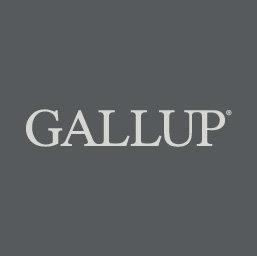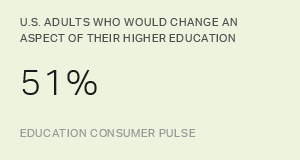Throughout 2017, Gallup investigated the current state of higher education in the U.S. We listened to the perspectives of critical audiences ranging from chief business and academic officers at colleges and universities to education consumers themselves to Americans in general. As 2017 comes to a close, we can address two important questions from what we've learned through our research:
- What are the serious issues currently facing higher education in the U.S.?
- What can institutions do to address these issues?
Higher Education in the U.S. Faces Two Fundamental Issues
The financial future of higher education in the U.S. is uncertain.
There is waning confidence in the financial stability of colleges and universities in the near future. An Inside Higher Ed/Gallup survey found that 71% of chief business officers at colleges and universities say media reports suggesting higher education is in the midst of a financial crisis accurately reflect the general financial landscape of higher education in the U.S. This is up from 63% the prior year and 56% in 2015.
Concerns about higher education's financial stability could suggest that the dramatic increase in the cost of college -- up 400% since the early 1980s -- might have finally outpaced demand, especially because there has not been a corresponding increase in quality.
Americans' views of higher education are becoming increasingly politically polarized.
More than 20 percentage points separate Republicans' and Democrats' confidence in U.S. colleges and universities. While a majority of Democrats and Democratic-leaning independents (56%) say they have a great deal or quite a lot of confidence in colleges, only a third of Republicans and Republican-leaning independents (33%) hold that same view.
Even the reasons for low confidence split sharply along partisan lines. Republicans criticize institutions for what they perceive to be a liberal ideological bias, for pushing a political agenda and for stifling students' ability to think for themselves. Meanwhile, Democrats with low confidence in colleges cite inflated tuition costs, poor leadership, decreased quality and the difficulty graduates have finding jobs.
What Does This Mean for Institutions?
Amid the uncertainty about their financial future in an increasingly politically polarized climate, higher education institutions could face lower enrollment in the coming years. In fact, it's already happening -- the number of college students enrolled in the U.S. fell each year between 2011 and 2014, and most colleges failed to meet their revenue or enrollment goals for 2016.
As such, the current higher education model (which saw total undergraduate enrollment between 1970 and 2014 increase by more than 5.5 million students) may have peaked. Instead of a singular focus on increasing entry into college, perhaps -- as Brandon Busteed, Gallup's executive director of education and workforce development, has opined -- higher education will now increase focus on helping students successfully transition from college to the workforce.
What Can Institutions Do?
Higher education institutions can demonstrate their value to consumers by increasing their alignment with the workforce. To that end, an Inside Higher Ed/Gallup study found that 83% of university chief academic officers and provosts say their institution is focusing on helping students use their degrees to get good jobs.
Gallup's research among college graduates shows that one way to help graduates land good jobs after college is to emphasize work-integrated learning during college. Across all majors, recent college graduates who had a relevant job or internship as an undergraduate were twice as likely to have a good job waiting for them upon graduation. Further, graduates who had a relevant job or internship during college are significantly more likely to now be in jobs that are "completely related" to their undergraduate studies.
Why should this matter to colleges and universities? Because graduates with work-integrated learning during college are more likely to value their degree after college. Among recent graduates, almost half (47%) of those who are in jobs completely related to their undergraduate studies strongly agree that their education was worth the cost, compared with 29% of those in jobs where the work is not at all related to their undergraduate studies.


